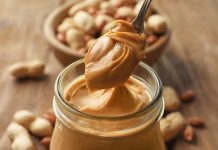Science supports a mother’s belief; yogurt (with its live bacterial cultures) improves your immune response. But beware, this is not true for all yogurts.
As a child, I remember my mother frequently telling me to eat yogurt because the friendly bacteria would keep me healthy. On the rare occasions my cold would become virulent enough to force me onto antibiotics, to my horror I would be served an even more generous portion of slimy vanilla gloop. Science has proven my mother right. Nutritional scientists from all over the world agree that probiotic bacteria present in yogurt stimulates our immune system.
Table of Contents
We have known for many years now that the live bacterial cultures of bacterias such as Bacillus bifidus and Lactobacillus casei present in yogurt have beneficial effects on our intestines and related bowel movements, but the recent discoveries point to a desirable association between humans and bacteria to ward off infection.
Your body requires the help of over 400 species of bacteria in order to digest the food we eat. They identify invaders and produce chemical weapons to defend their cherished home that is our gut. This natural association makes up for approximately 70% of our immune defense. The impact of these intestine dwelling microbes is felt throughout the body as they influence our immune response by stimulating our natural killer cells, modulate our inflammatory response (fever), and increase the production of antibodies that are then released into the blood stream and carried to every corner.
People who regularly eat yogurt have a higher percentage of cytotoxic lymphocyte T-cells (the body’s foot soldiers) in their blood. This doesn’t mean that eating yogurt every day will stop your from ever having a cold again, but it will help reduce the symptoms and speed up your recovery; if you get sick, you’ll bounce back faster.
Unfortunately, not all yogurts are created equal. Walking down the yogurt isle these days can prove quite overwhelming. The abundance of choice and health claims make any decision difficult. The following suggestions should steer you towards the healthiest option.
Look for few ingredients
Besides milk and live cultures, everything else is just added fluff and empty calories. Avoid anything containing more than 10gm of sugar per one-cup serving. Can’t stand plain yogurt? A few drops of vanilla extract or a drizzle of maple syrup should do the trick.
Watch for live culturesOnly buy products that sport the “LAC” (Live Active Cultures) seal, and make sure it’s not “heat treated”. When it comes to bacteria cultures, the more the merrier.
Keep an eye on fat content
In this case, it’s a matter of personal choice and dietary needs. Neil Zevnik of Better Nutrition recommends Chobani all-natural non-fat Greek yogurt. Zevnik writes ” [Greek yogurt] is gratifyingly thick, not too tangy, and has plenty of protein.”
It all comes down to reading the label and keeping it simple. This nutritional wisdom, which required years of lab testing all over the world, was simply common sense to my mother. How she obtained such dietary genius I will never know, but one thing is for sure, Mama knows best.
Sources:
- Bell, Brenda. “The Hidden World of Yoghurt”. View Magazine. May-June 1994:16-19
- Perdigon, G.; S. Alvarez; M Rachid; G. Agüero; N. Gobbato. “Immune System Stymulation by Probiotics. Journal of Dairy Science. July 1995. 78 [7]: 1597-1606
- Wheeler, J.G.; M.L. Bogle; S.J. Shema; M.A. Shirrel; K.C. Stine; A.J. Arlyn; A.W. Burks; R.M. Helm. “Impact of Dietary Yogurt on Immune Function”. American Journal of Medical Sciences. Feb 1997. 313 [2]: 120-123
- Zevnik, Neil. “The Cream of the Crop”. Better Nutrition. Jan 2011: 52



